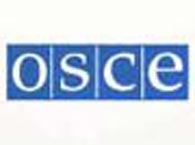Authoritarian Kazakhstan prepares to assume OSCE chairmanship in 2010
 Astana/Moscow - When Western politicians speak of Kazakhstan with a gleam in their eyes, they're usually not thinking about the country's political conditions.
Astana/Moscow - When Western politicians speak of Kazakhstan with a gleam in their eyes, they're usually not thinking about the country's political conditions.
President Nursultan Nazarbayev has ruled with an iron fist since Soviet times, and there is no opposition in the Central Asian nation's parliament.
Kazakhstan's economic prospects are bright, however, as the region has 5 per cent of the world's energy reserves. What is more, Kazakhstan aims to become the world's biggest producer of uranium in 2009.
So economic interests are likely part of the reason the 56-member Organization for Security and Cooperation in Europe (OSCE) was expected on Thursday to confirm that Kazakhstan, despite its democratic shortcomings, can become the first ex-Soviet republic to assume the OSCE chairmanship, starting in 2010.
"The country ought to grow with this task," an OSCE diplomat said.
Astana, the Kazakh capital, looks like a typical capitalist city with its magnificent buildings by star architects Sir Norman Foster and Frank Gehry. The glass pyramids and splendid boulevards, financed by billions from trade in raw materials, are meant to give Kazakhstan, the world's seventh largest country and largely covered by steppe, a modern image.
Kazakhs' striving for modernity partly explains why they were upset two years ago by Borat: Cultural Learnings of America for Make Benefit Glorious Nation of Kazakhstan, a satirical film in which British comedian Sacha Baron Cohen played a backward Kazakh journalist travelling through the United States.
Kazakh Foreign Minister Marat Tazhin emphasized recently that his country already saw itself as a member of the modern community of nations - not only economically, but politically as well.
Tazhin, likely looking ahead to the meeting of the OSCE Ministerial Council in Helsinki on 4-5 December, also made flowery promises of reform. He announced that Kazakhstan would legislate a multiparty system and liberalize its media law for the first time in its contemporary history.
He said the country also planned to create better conditions for foreign election monitors. In August 2007, the OSCE had reproached Kazakhstan for serious irregularities during it parliamentary vote. Tazhin asked for patience: "Democracy is not a result, but a process," he said.
An OSCE diplomat, who asked to remain anonymous, conceded that the organization, which enjoys worldwide esteem, was not of one mind on Kazazhstan. "But you mustn't forget that the OSCE was anything but an association of flawless democracies when it was founded in 1975," he said.
In any event, the diplomat went on, the OSCE could strengthen its position in Central Asia by giving the chairmanship to Kazakhstan. In the West's view, Kazakhstan has a special role in the region as a stabilizing factor, especially given the religious tensions surrounding the Afghanistan conflict.
Freedom of religion will be among the areas scrutinized when the OSCE Ministerial Council reviews Kazakhstan's democratic progress this week. The separation of church and state is enshrined in the country's constitution. "That doesn't mean every religious persuasion here can do what it wants," noted Amanbek Mukhashov, who works for the Kazakh Justice Ministry's Religious Affairs Department.
The main goal, Mukhashov said, was stopping the spread of Muslim fundamentalism in Central Asia. Given that, Jean-Marc Stoop, vicar general of the Roman Catholic archdiocese in Astana, warned that Kazakhstan's assumption of the OSCE chairmanship could end in failure.
"If its leadership role succeeds, humanistic values could take a stronger hold in the region," Stoop said, adding that extremists would have more leeway if the West leaves Kazakhstan to itself.
Some 47 per cent of Kazakhstan's approximately 15 million inhabitants are Muslims. And according to Kalizhan Zankoyev, chief imam of Astana's magnificent Nur mosque, there are clear signs of activity in Kazakhstan by Islamic organizations from abroad. But so far, he said, the extremists were unsuccessful.
But that could change if political reforms are implemented too quickly, warned Zankoyev in his office at the mosque, which accommodates about 5,000 worshippers. "Changes shouldn't confuse people," he said. (dpa)